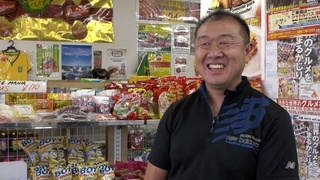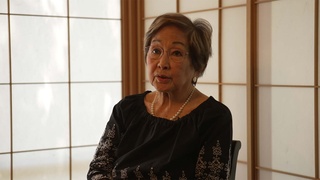Interviews
Early Childhood
I was born on October 7, 1957, in Tokyo, Japan, to a Japanese mother and an American father. I was raised in Japan and in the Philippines, attending United States DOD (Department of Defense Dependents) schools.
Unfortunately, when I was nine, when we moved to Yokota Air Force Base, which is part west Tokyo, my father died of a heart attack and then my mother went to work for the US government at the front desk of the US military hotel and then through for the military travel services.
So after that, I only spoke Japanese at home. Of course, Japanese was my first language with my mother, and my father, he told my mother, “Speak Japanese, she'll pick up English in school, but make sure she understands Japanese.” So I grew up in Yokota, graduated from Yokota Air Force Base high school, and that's my childhood.
Date: July 14, 2022
Location: California, US
Interviewer: Lana Kobayashi
Contributed by: Watase Media Arts Center, Japanese American National Museum; Japanese American Bar Association







